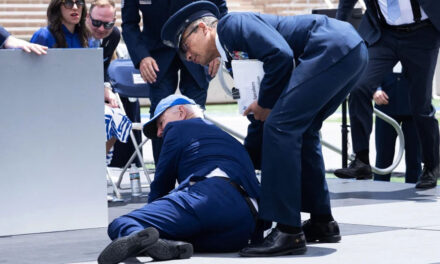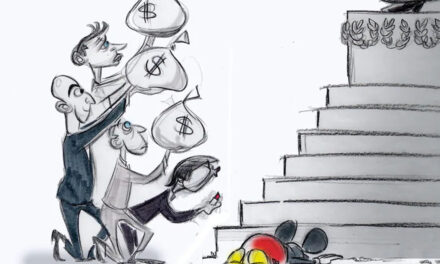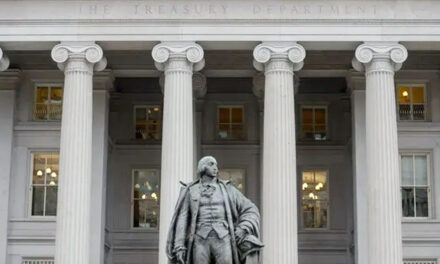
Is America Good at Nation-Building?

One of the arguments that has been leveled at our military operations (undeclared wars) in various nations is that the aftermath requires “nation-building” – and that America is not good at nation-building. In truth, the United States is great at nation-building. But first, we need to understand what the term means — or should mean.
The common understanding of nation-building is for the United States to be the primary force in transforming nations to a more positive role in the world community – with emphasis on the expansion of democratic principles and practices.
Since the founding of the American Republic, we have been singularly the number one force in transforming a world in which virtually every nation was ruled over by autocrats – kings, tsars, emperors, potentates, dictators and tribal chieftains – to a world in which democracy has become a dominant governing philosophy or aspiration. We have done it by inspiration, diplomacy and military victory.
Those who say that America is not good at nation-building are shortsighted. They judge history only in more recent times.
One of the tributes made to the United States after World War I was that we made the world safe for democracy. Before the War, monarchs of one sort or another ruled much of Europe. We changed that. After World War II we did two things. We restored democratic leadership to nations that Nazi Germany had conquered and transformed other nations from authoritarian to democratic rule.
We did it by managing the reconstruction of the defeated nations. And we kept troops on the ground as the new democratic governments were established. And we played a role in identifying the right leadership. We supervised the building of the democratic infrastructure. We provided economic assistance through such programs as the Marshall Plan.
To see the uniqueness in America’s approach to nation-building, one only need look at eastern Europe after the War.
It remained subjugated and occupied by Russia in the name of a Union of Soviet Socialist Republics (USSR). On the other hand, western Europe flourished as independent democratic states – created by the United States in cooperation with the freedom loving people of the region.
It is almost impossible in world history to find a victorious army that built new nations founded on independence and personal freedom out of the ashes of defeat. Russia is the more common example – in which the conquering army occupies and steals the assets of the defeated – forcing the populace into dreary submission.
It is sadly true that we have not done a great job in transforming nations in the Middle East. And there are two reasons for it. First, we failed to win the wars. And we did not have the opportunity to reform those nations.
Defeating Hitler was only half the battle. The United States remained in charge to direct the post-War reconstruction – physical, economic AND political. We made sure that the right people were initially in charge of the government. And at the same time we supervised the establishment of democratic infrastructures with emphasis on free elections. We maintained a military presence to protect the newfound freedoms – not to subjugate the populace. While Russia ruled over nations by force as spoils of war, we turned enemies into allies based on the will of the people.
If you don’t win the war – and you retreat from the field of battle – there is no aftermath to oversee. In fact, it is the enemies who remain on the scene to construct the new totalitarian state.
Two examples are noteworthy.
In Korea, we salvaged half a loaf. Our armed forces remained in South Korea to supervise the evolution to democracy. Today’s distinction between the austere and oppressed North Korea and the vibrant South Korea is reminiscent in the differences we saw between eastern Europe, that remained under the control of Russia, and western Europe, that was subject to American nation-building.
In Iraq, we appeared to have won the war when President Bush II declared victory over Saddam Hussein. But we did not stick around to work on nation-building. We left the process to the factions that divided the nation in the first place. As someone later noted, “We won the war, but lost the peace.”
Japan is also an example of American nation-building at its best. It turned that nation into a democratic republic for the first time in its long, long history – and a strong ally of the United States. That is significant because critics of nation-building claim that nations with long histories of autocratic rule are not culturally capable of embracing democracy. Japan proved them wrong.
Winning the Cold War against Russia was a huge opportunity for nation-building diplomacy by the United States. Virtually all of what were once called “the captive nations” that composed the old Soviet Union were transformed into some level of democratic republics. Democratic movements in many of the newly freed nations were protected militarily by enfolding them into NATO. This put them outside the reach of a newly aggressive Russia.
No nation in history has been more instrumental – via diplomacy and war – in turning autocratic nations into democratic republics. It has been America’s moral mission since thirteen British colonies declared their independence from the British crown.
Our more recent failures at nation-building are not a matter of not knowing how to nation-build. They are the result of a national leadership that has lost its resolve to exert America’s positive military and economic influence.
So, there ‘tis.



























“If you don’t win the war – and you retreat from the field of battle – there is no aftermath to oversee. “
Or we could just not get into the war in the first place.
Thanks for the history lesson, but perception is reality and the reality is that we have contributed to untold misery with our interventions in the name of America’s best interest. Let’s mind our own business.